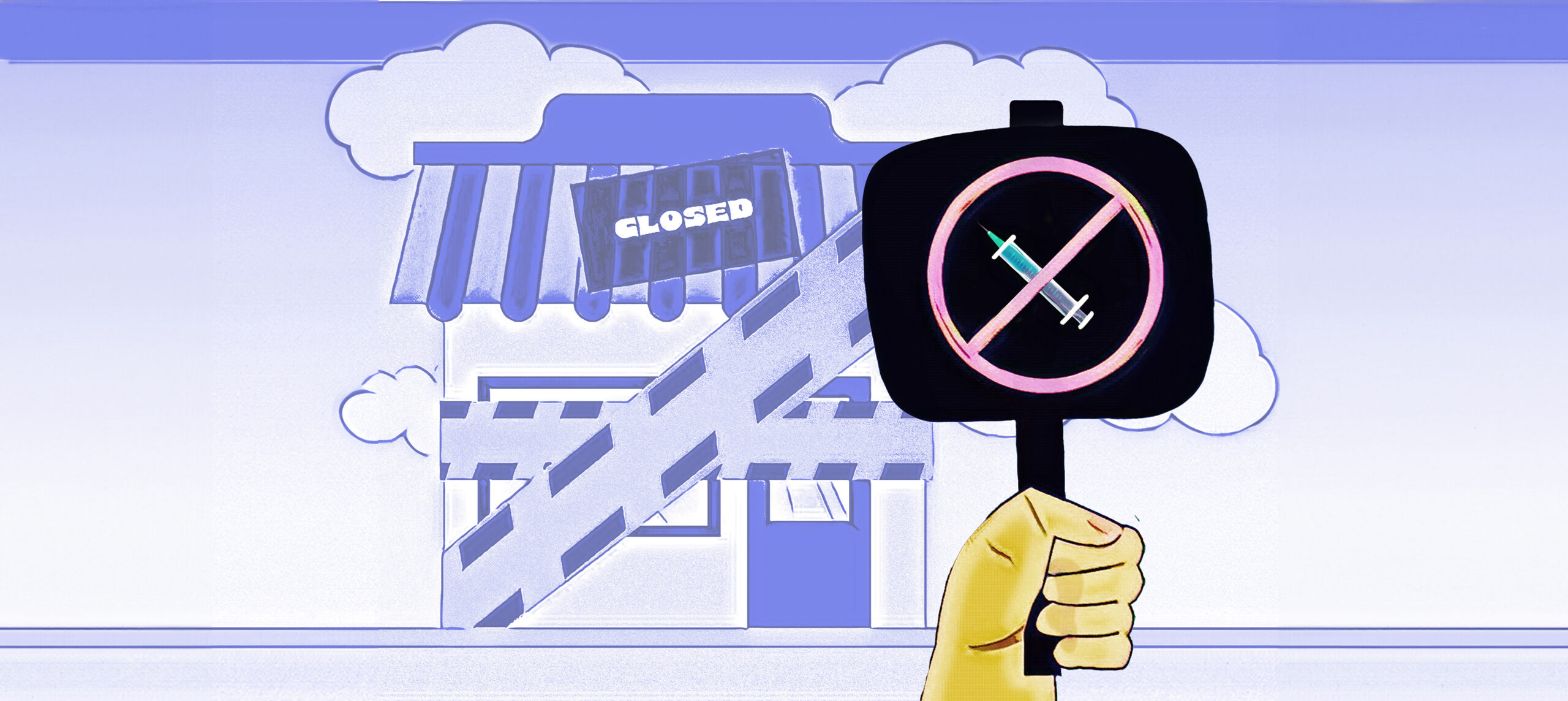Ten Ontario supervised drug consumption sites slated to close by April 2025
Ontario can expect to see an increase in treatment services across the province following the shutdown of supervised consumption services.
On August 20, Ontario Health Minister Sylvia Jones announced that Supervised Consumption Services (SCS) within 200 metres of schools and child-care facilities will be forced to close by March 2025.
The new policy will shutter 10 consumption sites, five of which are in Toronto. The rest of the sites are in Ottawa, Kitchener, Thunder Bay, Hamilton and Guelph. Nine of the facilities are provincially funded and one is privately owned.
SCS enables individuals to consume drugs under supervision to reduce the chance of overdosing. According to Health Canada, “Canadian and international evidence [shows] clearly that supervised consumption services help to save lives, connect people to social services and serve as pathways to treatment.”
In her announcement, Minister Jones stated, “In Toronto, there’s been numerous stories of altercations, stabbing, shootings, and even a homicide in the vicinity of these sites.” Reports of assault in Toronto in 2023 were 113 per cent higher whereas robbery was a staggering 97 per cent higher in neighbours close to SCS sites.
However, data from Toronto police reveals otherwise and even reports crimes such as bike thefts, break and enters, shootings, thefts from vehicles, robberies, and homicides decreasing in areas with SCS, often more than they did in other parts of the city.
In a press conference on August 21, Premier Doug Ford defended his government’s decision, pointing to the need to protect the communities in which the facilities are located: “I’ve listened to the people in the neighbourhoods. I’ve consulted with them. I’ve been getting endless phone calls about needles being in the parks, needles being by the schools, and by the daycares. That’s unacceptable,” Ford stated.
The premier’s administration also announced a C$378 million investment in 19 Homelessness and Addiction Recovery Treatment Hubs, which will provide support for mental health, primary care, substance use, employment, and social service needs. Its focus on treatment and recovery as opposed to supervised drug consumption was echoed by Ford on August 16 when he stated, “What works is rehab, detox beds, supporting these people with good paying jobs.”
Growing concerns as SCS face closure
The government’s decision to close certain SCS has sparked concern among frontline health workers and community leaders.
Zoë Dodd, an organizer with the Toronto Overdose Prevention Society, referred to the facilities as “lifelines” and stated that the closures “will kill,” while Lorraine Lam, an outreach worker, in a conversation with the CBC, described them as the handing out of “death sentences.”
Numerous Toronto leaders have also spoken on the announcement, given the number of facilities which are in Toronto and the number of overdose deaths in the city, which has increased by over 300 per cent between 2015 and 2021.
Toronto Centre City Councillor Chris Moise, who is also a former addictions counsellor at a local hospital, described to CTV News in detail the need for SCS, which provide “critical services” and “have saved countless lives in Toronto.”
Moise also pointed to how closing sites will not reduce drug usage but instead increase public drug use and the transmission of infectious diseases like HIV and Hepatitis C. He also noted that the city was not consulted by the province regarding their plan.
Toronto Mayor Olivia Chow released a joint statement and shared it on X with Moise, stating, “We are concerned that the provincial closure of existing harm reduction services will have significant consequences – such as more overdose deaths, more strain on police, fire and paramedics, more crowded emergency rooms, and more public drug consumption.”
Shutting down SCS sites and implementing expansion of treatment initiatives
The decision to shutter SCS came soon after the August 19 release of two reviews sanctioned by the Ministry of Health on the South Riverdale Community Health Centre (SRCHC) after the death of Karolina Huebner-Makurat, who was fatally struck by a stray bullet from a nearby gunfight which took place beside the SRCHC.
The reviews both recommended the expansion of consumption and treatment services. The supervisor’s report, prepared by Jill Campbell, also commented on the range of community responses, which included feedback which attributed community safety concerns to the consumption site and the voicing of support for the centre and its clients.
The supervisor’s report stated that there was a “dearth of research on the negative and unintended impacts” of SCS and pointed to how they “formalize” drug-related activity in a community in a way that simple awareness of drug use does not.
The report also noted that the meeting minutes from a Community Liasion Committee showed that there was little evidence that safety concerns raised by a community member were taken seriously and responded to.
The report’s recommendations ultimately stated that “evidence shows that consumption treatment services are a necessary public health service, implemented to save lives and prevent accidental overdose death related to substance use.”
News Editor (Volume 51); Associate News Editor (Volume 50) — Samuel is a second-year student at UTM studying Politics and English. He previously worked with The Medium as an Associate News Editor and currently serves as the publication’s News Editor. Samuel is passionate about employing the power of writing to enhance our student community and hopes to help nurture a bright future for The Medium this year. In his spare time, Samuel can be found working out, creating music on the piano and drums, or exploring nature.


